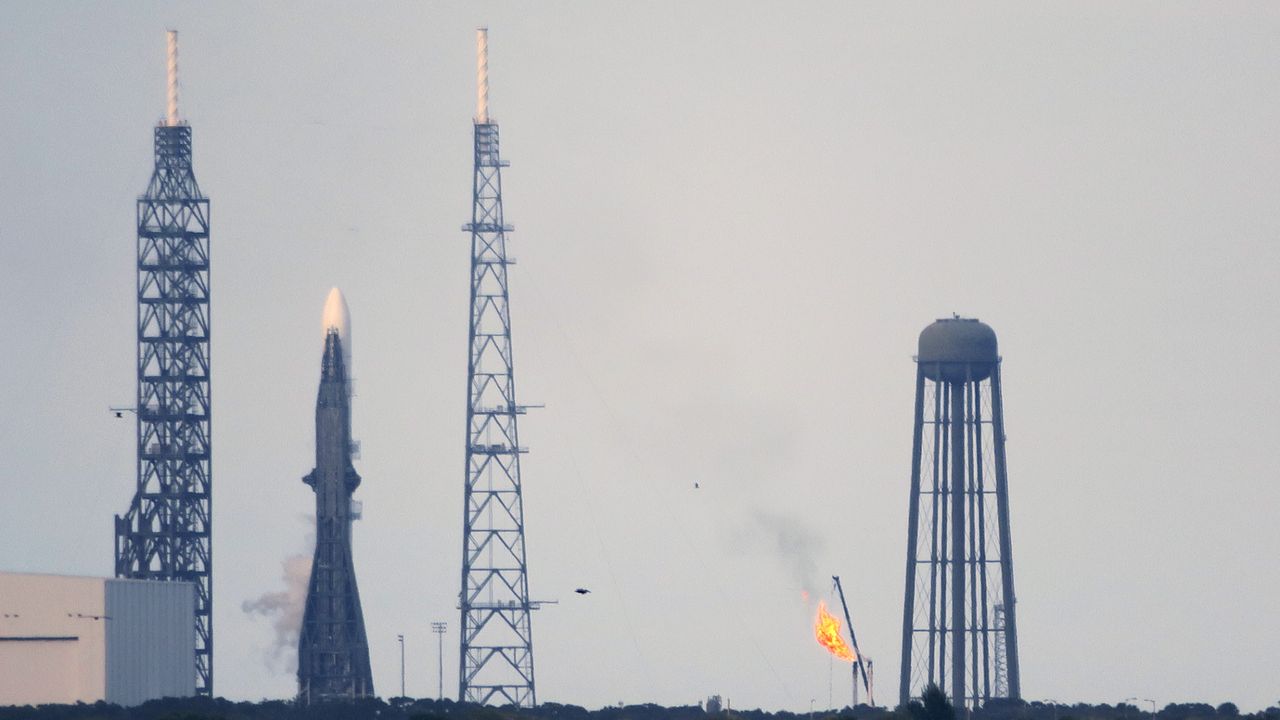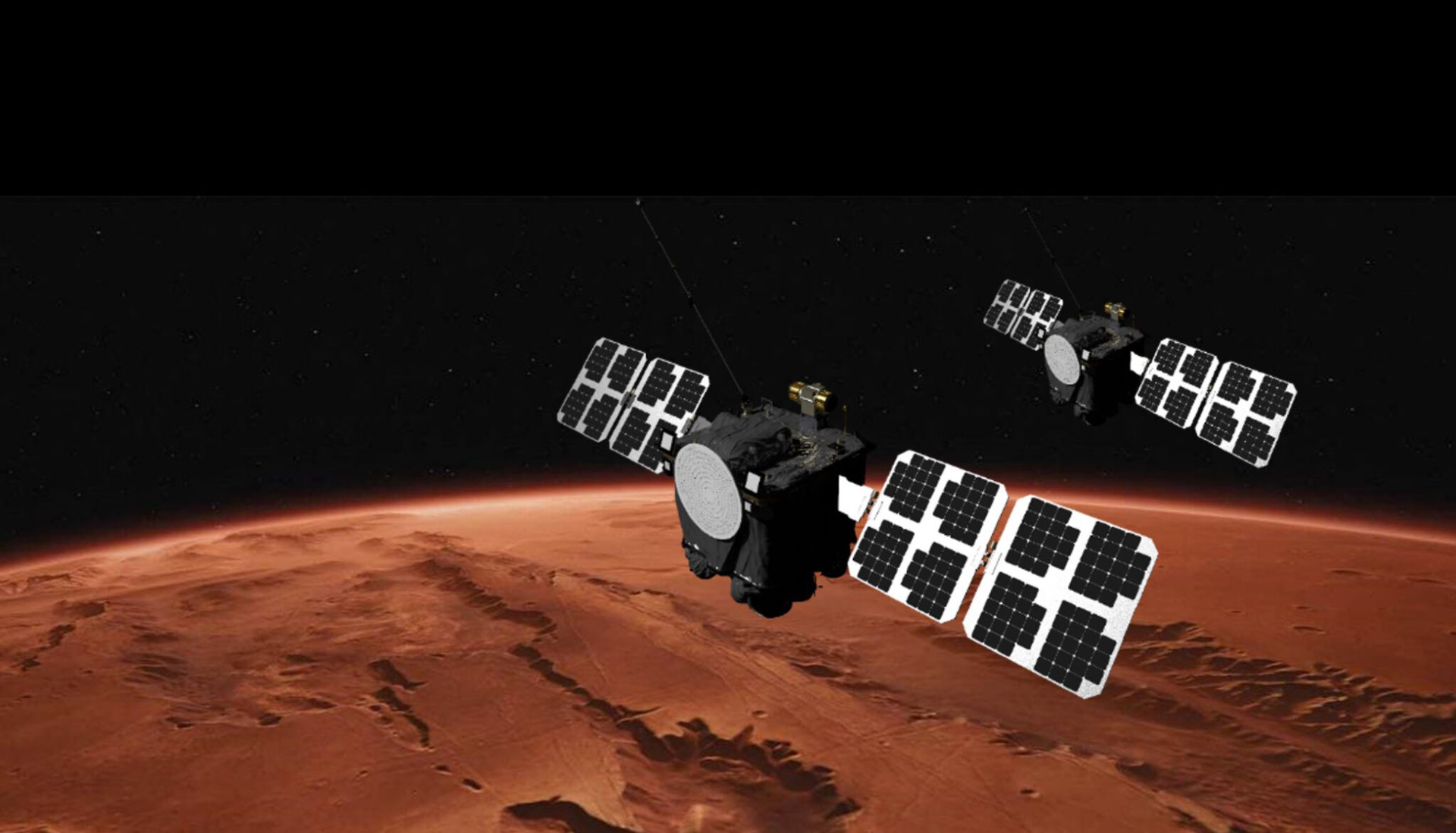
Update for 12:30 a.m. ET on Nov. 13: Blue Origin is now targeting Thursday (Nov. 13) for the ESCAPADE launch. Liftoff will occur during a window that's open from 2:57 p.m. EST to 4:25 p.m. EST (1957 to 2125 GMT). Read our launch preview for more information.
Blue Origin has scrubbed today's launch attempt of its second-ever New Glenn rocket.
The delay today (Nov. 11) follows a Nov. 9 launch attempt that was also called off due to bad weather. Now, extreme solar storms, which spawned aurora borealis as far south as New Glenn's Florida launchpad, have pushed the mission once again.
New Glenn had targeted a 2:50 p.m. EST (1850 GMT) liftoff from Blue Origin's Space Launch Complex-36, at Cape Canaveral Space Force Station today (Nov. 12), to send NASA's twin ESCAPADE orbiters to Mars. "However, due to highly elevated solar activity and its potential effects on the ESCAPADE spacecraft, NASA is postponing launch until space weather conditions improve," Blue Origin wrote in a post on X.

A new ESCAPADE launch date has yet to be announced, but Blue Origin is evaluating future dates. "We are currently assessing opportunities to establish our next launch window based on forecasted space weather and range availability," the company said in their post.
The company will have to work out an exception for a new launch window with the Federal Aviation Administration, which announced an indefinite halt to all commercial launches during daytime hours to ease strain on air traffic controllers and commercial flights during the ongoing government shutdown.
NASA's ESCAPADE mission (Escape and Plasma Acceleration and Dynamics Explorers) is the agency's first mission to Mars since the Perseverance rover launched in 2020. The Rocket Lab-built orbiters are designed to help research how the solar wind contributes to the depletion of Mars' atmosphere, among other studies.
The mission, and its delay, come at a particularly volatile time for Earth's star. As the current period of solar activity ramps up, our home planet, too, has experienced some significant interactions between the atmosphere and incoming space weather.
One of the most energetic sunspot groups of the current solar cycle, AR4274, recently released a powerful G4 coronal mass ejection straight toward Earth. Its impact caused widespread aurora overnight Tuesday (Nov. 11), and led to New Glenn's subsequent delay.







